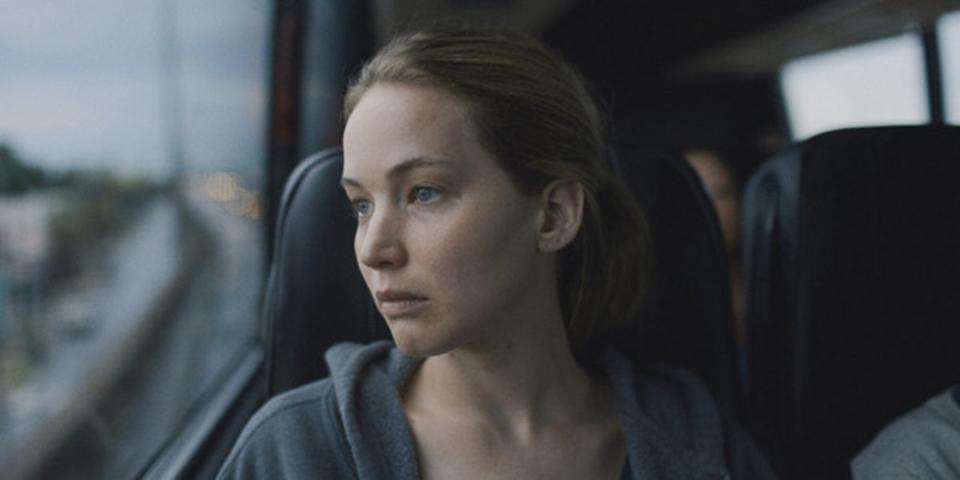Causeway review: Jennifer Lawrence and Brian Tyree Henry find loneliness together in a modest, moving indie
It's easy to forget sometimes that Jennifer Lawrence, an Oscar-winning movie star with two major franchises to her name in the last decade, started her career in indie film. But the spare, contemplative drama Causeway, which bowed this weekend at the Toronto International Film Festival, feels in some ways like a return to her breakout role in the 2010 Sundance Grand Jury prize winner Winter's Bone: a movie largely stripped down to the unadorned essence of its material and the internalized pain of its characters.
Lawrence is Lynsey, a soldier sent back to the U.S. from Afghanistan after suffering a traumatic brain injury. She looks intact, but she needs intensive rehab before she can even begin to use the bathroom or drive a car on her own again; by the time she's recovered enough to leave her temporary caregiver (a congenial Jayne Houdyshell) and go back home to New Orleans, it's clear that whatever trauma she's holding onto didn't all come from overseas. Her mom (Linda Emond) is happy enough but vaguely nonplussed to see her; her brother, an addict who seems either far away or long gone, is barely spoken of. But a chance encounter at an auto-body shop with James (Brian Tyree Henry) puts the first small crack in her closed-off exterior. Lynsey remembers playing basketball in high school with his sister, and getting a beer or a Snow-Cone with him feels better than being anywhere else.

Courtesy of TIFF Jennifer Lawrence in 'Causeway.'
She also gets a job cleaning pools, which deposits her in zip codes far from the scruff and privation of her own neighborhood. But what Lynsey most wants, desperately, is to get her neurologist (Stephen McKinley Henderson) to sign off on the papers that will let her redeploy; unsurprisingly, he's less than eager to say yes. So James and Lynsey continue to circle one another, two damaged people offering up small, reluctant morsels of their backstory like bargaining chips (there's a reason why he limps, and no longer speaks to his sister).
Broadway director Lila Neugebauer, making her film debut with a lean script by novelist Ottessa Moshfegh (My Year of Rest and Relaxation, Eileen), Luke Goebel, and Elizabeth Sanders, saturates the movie in measured silences and humid, lived-in atmosphere, letting Lawrence and Henry's low-key performances contract and expand. When things might turn conveniently cinematic, they don't: A drunken night at a wealthy client's "borrowed" pool doesn't end with the manufactured drama of the owners suddenly coming home, for example, but with a foolish, aggrieved argument. This pair doesn't need any help hurting themselves.
That lack of outright incident, the willingness to just sit in itself quietly and observe, is one of Causeway's most admirable qualities, though it can also make the film (already slated by AppleTV+ for a Nov. 4 release) feel too minor-key; there's a fine line between subtlety and impassivity. And certain details (of Lynsey's diagnosis, or James' personal history) seem glossed over, either for convenience or simply because they haven't been fully considered. Still, it's nice to see actors like these do such subtle, sympathetic work for a gifted young director — and to find an outlet for storytelling that doesn't demand neat redemption, but still allows for grace. Grade: B
Related content:
2023 Oscars predictions: Brendan Fraser, Viola Davis, Avatar, and more contenders to watch
Jennifer Lawrence gets emotional over leaving home at 14 at TIFF Causeway premiere

